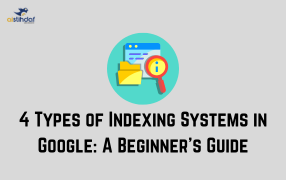
7 Things to Notice While Creating an SEO Content
Creating content that ranks well on search engines is crucial for driving organic traffic to your website. However, simply writing great content isn't enough; it needs to be optimised for search engines. Here are seven important factors to consider when creating SEO content. 1. Keyword Research Before you start writing, conduct thorough keyword research. Identify the terms and phrases your target audience is using to search for information related to your topic. Tools like Google Keyword Planner, SEMrush, or Ahrefs can help you find relevant keywords. Focus on a mix of short-tail and long-tail keywords to capture a broader audience. 2. Content Structure A well-structured article is easier for both readers and search engines to navigate. Use headings (H1, H2, H3) to break up content into sections. This not only improves readability but also helps search engines understand the hierarchy of your content. Incorporating bullet points and numbered lists can also enhance the structure. 3. Quality and Relevance Search engines prioritise high-quality, relevant content. Ensure that your content provides valuable information to your audience. It should answer their questions, solve their problems, or provide insights. Avoid fluff and stay focused on the topic at hand. Originality is key—search engines penalise duplicate content. 4. Optimised Meta Tags Meta titles and descriptions play a significant role in SEO. Make sure your title is compelling and includes your primary keyword. The meta description should provide a concise summary of the content and encourage clicks. While meta tags are not a direct ranking factor, they influence click-through rates, which can indirectly affect your rankings. 5. Internal and External Links Linking to other relevant pages on your website (internal links) helps search engines crawl your site more effectively. It also keeps readers engaged with your content. Additionally, including reputable external links to authoritative sources can enhance your content’s credibility. Just ensure the links are relevant and beneficial to the reader. 6. Mobile Optimization With a significant amount of web traffic coming from mobile devices, ensuring your content is mobile-friendly is essential. Use responsive design, optimise images, and ensure fast loading times. Google prioritises mobile-optimised sites in its rankings, so make sure your content looks and performs well on all devices. 7. Regular Updates SEO is not a one-time task; it requires ongoing effort. Regularly update your content to keep it fresh and relevant. This can include adding new information, updating statistics, or refining keywords based on current trends. Search engines favour updated content, which can improve your rankings over time. Conclusion Creating SEO-friendly content involves a combination of keyword research, quality writing, and technical optimization. By paying attention to these seven factors, you can improve your chances of ranking higher in search engine results, ultimately driving more organic traffic to your website. Remember, the goal is to provide value to your audience while making it easy for search engines to understand your content. Happy writing!





















































